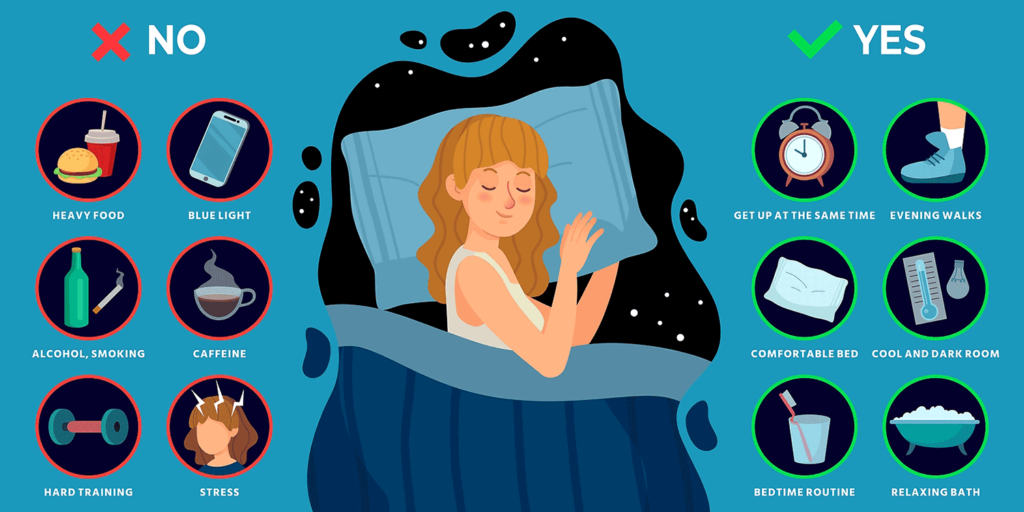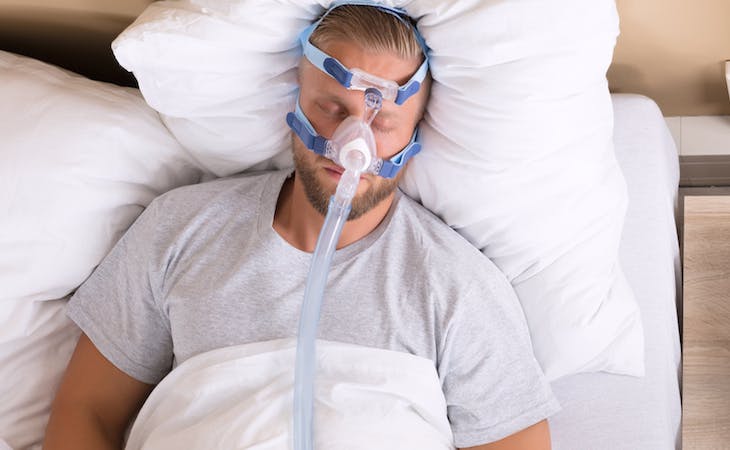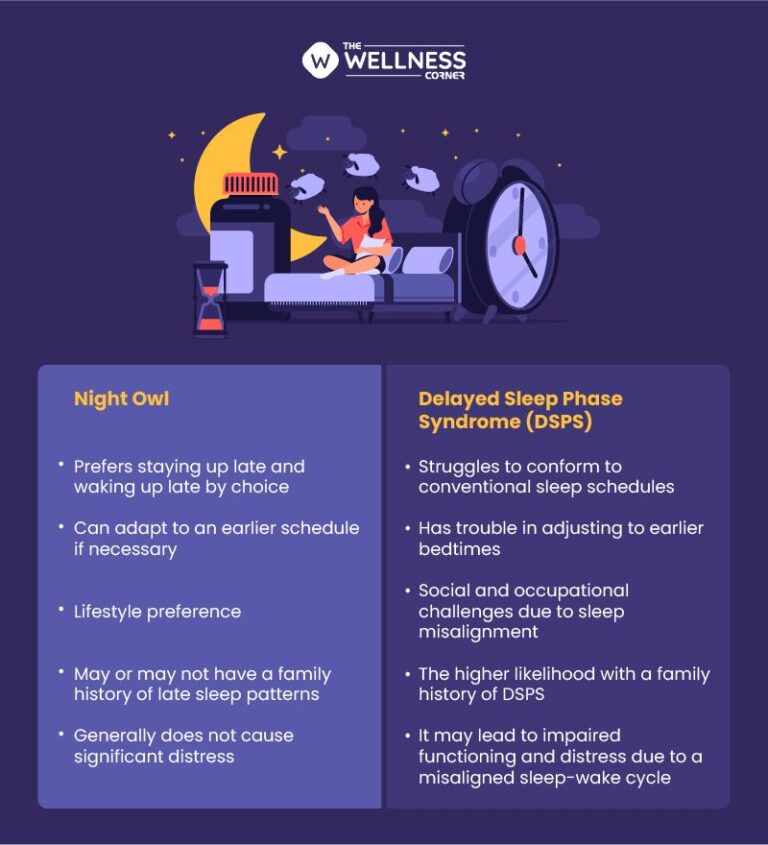The Sleep Apnea Specialist’s Guide to a Good Night’s Sleep

Are you tired of tossing and turning all night, struggling to get a good night’s sleep? Look no further than “The Sleep Apnea Specialist’s Guide to a Good Night’s Sleep” by Vector Sleep Clinic. In today’s fast-paced world, sleep disorders have become increasingly common, negatively impacting our health and productivity. From insomnia to sleep apnea, these disorders can lead to serious health issues such as heart attacks, strokes, and high blood pressure. Thankfully, Vector Sleep Clinic is here to provide comprehensive care that will help you unlock the magic of restful nights, where dreams meet rejuvenation. So why wait? Take the first step towards a better night’s sleep and a healthier you.
Sleep Apnea: Understanding the Common Sleep Disorder
Sleep apnea is a common sleep disorder that can significantly impact your overall health and well-being. Understanding this condition is important in order to seek appropriate care and treatment. In this article, we will explore the definition of sleep apnea, its types, causes, symptoms, and effects on sleep quality.
This image is property of domusretreat.com.
Definition of sleep apnea
Sleep apnea is a sleep disorder characterized by pauses in breathing or shallow breathing during sleep. These pauses can last for a few seconds to a couple of minutes and can occur multiple times throughout the night. Sleep apnea disrupts the normal sleep pattern and can lead to excessive daytime sleepiness and other health issues.
Types of sleep apnea
There are three main types of sleep apnea:
-
Obstructive sleep apnea (OSA): This is the most common type of sleep apnea and occurs when the throat muscles relax, causing the airway to become partially or completely blocked during sleep.
-
Central sleep apnea (CSA): This type of sleep apnea occurs when the brain fails to signal the muscles to breathe due to instability in the respiratory control center.
-
Complex sleep apnea syndrome (CSAS): This is a combination of both obstructive and central sleep apnea, where individuals experience both airway blockage and lack of respiratory effort.
Causes and risk factors
Several factors can contribute to the development of sleep apnea:
-
Excess weight: Being overweight or obese increases the risk of sleep apnea due to the accumulation of fat around the airway, which can obstruct breathing.
-
Age: Sleep apnea becomes more common as we age, primarily due to natural changes in muscle tone and the relaxation of throat muscles.
-
Gender: Men are more likely to develop sleep apnea compared to women, although the risk increases for women after menopause.
-
Family history: Having a family history of sleep apnea increases the likelihood of developing the condition.
-
Smoking and alcohol use: These habits can relax the throat muscles and contribute to airway obstruction during sleep.
Symptoms and effects on sleep quality
The symptoms of sleep apnea can vary from person to person. Common signs and symptoms include:
-
Loud snoring: Snoring is often the most noticeable symptom of sleep apnea, especially in obstructive sleep apnea.
-
Pauses in breathing: Individuals with sleep apnea may experience periods of interrupted breathing during sleep, often followed by loud gasping or choking sounds.
-
Excessive daytime sleepiness: Sleep apnea disrupts the normal sleep pattern, leading to poor sleep quality and daytime sleepiness.
-
Morning headaches: Waking up with frequent headaches can be a sign of sleep apnea, as reduced oxygen levels during sleep can cause headaches.
-
Fatigue and irritability: Poor sleep quality due to sleep apnea can lead to feelings of fatigue, irritability, and difficulty concentrating.
It is important to seek medical attention if you experience these symptoms, as untreated sleep apnea can have serious consequences on your overall health and quality of life.
This image is property of www.saatva.com.
The Role of a Sleep Apnea Specialist
Seeking specialized care from a sleep apnea specialist is crucial for the accurate diagnosis and effective treatment of sleep apnea. These specialists have the necessary qualifications and training to address the specific needs of individuals with sleep disorders. Let’s delve deeper into the importance of specialized care, the qualifications of sleep apnea specialists, and their role in diagnosing and treating sleep apnea.
Importance of seeking specialized care
Sleep apnea is a complex condition that requires a multidisciplinary approach for proper management. Sleep apnea specialists have the expertise and experience to provide personalized care, considering various factors such as the severity of the condition, underlying health issues, and individual lifestyle factors.
Qualifications and training of sleep apnea specialists
Sleep apnea specialists are typically board-certified physicians or healthcare professionals with specialized training in sleep medicine. They undergo rigorous education and training programs to gain a deep understanding of sleep disorders, diagnostic procedures, and treatment options.
Their role in diagnosing and treating sleep apnea
Sleep apnea specialists play a pivotal role in diagnosing sleep apnea and determining the most appropriate treatment plan. They conduct comprehensive evaluations, including medical history reviews, physical examinations, and ordering sleep studies when necessary. These specialists interpret sleep study results, provide a diagnosis, and develop personalized treatment plans tailored to each individual’s unique needs.
Collaborative approach with other healthcare professionals
Sleep apnea specialists collaborate with other healthcare professionals, such as respiratory therapists, dentists, and psychologists, to ensure comprehensive care for sleep apnea patients. This multidisciplinary approach allows for a holistic assessment of the condition and ensures that all aspects of the patient’s health are considered during treatment.
Diagnosis of Sleep Apnea
An accurate diagnosis of sleep apnea is crucial for effective management. The diagnostic process typically involves a combination of assessments and sleep studies to evaluate sleep patterns, breathing abnormalities, and other factors contributing to sleep apnea. Let’s explore the overview of the diagnostic process, the importance of a sleep study, different types of sleep studies available, and the interpretation of sleep study results.
Overview of the diagnostic process
The diagnostic process for sleep apnea usually begins with a thorough medical history review and a physical examination. The sleep apnea specialist will ask about your symptoms, sleep patterns, and any underlying health conditions that may contribute to sleep apnea. They will also ask about your lifestyle and habits, such as smoking and alcohol consumption.
Importance of a sleep study
A sleep study, also known as a polysomnography, is a key component in diagnosing sleep apnea. It allows the sleep apnea specialist to monitor your sleep patterns, brain activity, heart rate, oxygen levels, and other physiological parameters during sleep. This information helps in determining the presence and severity of sleep apnea.
Different types of sleep studies available
There are different types of sleep studies available to diagnose sleep apnea:
-
In-lab sleep study: This is the traditional method where you spend a night at a sleep center, and your sleep patterns and physiological parameters are monitored by a team of healthcare professionals.
-
Home sleep apnea test: This is a more convenient option where you can perform the sleep study at the comfort of your own home using a portable monitoring device. The device records your sleep patterns and physiological data, which are then analyzed by the sleep apnea specialist.
Interpretation of sleep study results
Once the sleep study is completed, the sleep apnea specialist will interpret the results to determine the presence, severity, and specific characteristics of sleep apnea. They will analyze various parameters such as the number of apneas and hypopneas, oxygen desaturation levels, and sleep architecture. Based on the results, they can provide an accurate diagnosis and develop an appropriate treatment plan.

This image is property of Amazon.com.
Treatment Options for Sleep Apnea
Several effective treatment options are available for sleep apnea, ranging from lifestyle changes to medical interventions. The choice of treatment depends on the severity of the condition, individual needs, and preferences. Let’s explore the different treatment options for sleep apnea, including Continuous Positive Airway Pressure (CPAP) therapy, oral appliances, and lifestyle changes and self-care strategies.
Continuous Positive Airway Pressure (CPAP) therapy
CPAP therapy is considered the gold standard treatment for obstructive sleep apnea. It involves using a machine that delivers a constant flow of pressurized air through a mask worn over the nose, mouth, or both. The air pressure helps to keep the airway open during sleep, preventing apneas and improving breathing.
Oral appliances
Oral appliances, also known as mandibular advancement devices or dental mouthpieces, are another treatment option for sleep apnea. These devices are custom-made to fit over the teeth and reposition the jaw to keep the airway open during sleep. Oral appliances are particularly helpful for individuals with mild to moderate obstructive sleep apnea or those who cannot tolerate CPAP therapy.
Lifestyle changes and self-care strategies
In addition to medical interventions, making certain lifestyle changes can have a positive impact on sleep apnea. These may include:
-
Weight loss: Losing excess weight can help reduce the severity of sleep apnea, especially in cases where weight gain is a contributing factor.
-
Regular exercise: Engaging in regular physical activity can improve overall fitness and help alleviate sleep apnea symptoms.
-
Avoiding alcohol and sedatives: Alcohol and sedatives can relax the throat muscles and contribute to airway narrowing, exacerbating sleep apnea symptoms.
-
Sleep position adjustments: Sleeping on your side instead of your back can help keep the airway open and reduce the likelihood of apneas.
By adopting these lifestyle changes and self-care strategies, individuals with sleep apnea can improve their sleep quality and overall well-being.
Surgical Interventions for Sleep Apnea
Surgical interventions may be recommended for individuals with severe sleep apnea or those who have not responded well to other treatment options. These interventions aim to remove obstructions in the airway or reposition anatomical structures to improve breathing during sleep. Let’s explore an overview of surgical options, when surgery may be recommended, the risks and benefits of surgical interventions, and postoperative care and recovery.
Overview of surgical options
There are several surgical options available for sleep apnea, including:
-
Uvulopalatopharyngoplasty (UPPP): This procedure involves removing excess tissue from the throat to widen the airway.
-
Genioglossus advancement: This surgery repositions the tongue muscles to help keep the airway open during sleep.
-
Maxillomandibular advancement (MMA): This surgery repositions the upper and lower jaws to increase the size of the airway.
When surgery may be recommended
Surgery may be recommended for individuals with severe sleep apnea who are unable to tolerate or adhere to other treatment options. It may also be considered when there are anatomical abnormalities or obstructions that can be corrected surgically.
Risks and benefits of surgical interventions
Like any surgical procedure, there are risks associated with surgical interventions for sleep apnea. These include bleeding, infection, and adverse reactions to anesthesia. However, surgical interventions can provide significant improvements in sleep quality and symptom relief for certain individuals.
Postoperative care and recovery
Following sleep apnea surgery, individuals may experience some discomfort and swelling, which can be managed with pain medications and ice packs. It is important to follow the postoperative care instructions provided by the surgeon to promote healing and reduce the risk of complications. Regular follow-up appointments will be scheduled to monitor healing and ensure the effectiveness of the surgical intervention.
This image is property of pgcar.com.
The Importance of Sleep Hygiene
Sleep hygiene refers to the habits and practices that promote good sleep quality and overall well-being. Establishing a healthy sleep routine and creating a sleep-friendly environment can significantly improve the symptoms of sleep apnea. Let’s explore the definition and importance of sleep hygiene, establishing a regular sleep schedule, creating a sleep-friendly environment, and promoting relaxation and stress reduction before bed.
Definition and importance of sleep hygiene
Sleep hygiene encompasses a range of practices and behaviors that are essential for a good night’s sleep. Adopting good sleep hygiene habits can improve sleep quality, enhance daytime functioning, and reduce the severity of sleep apnea symptoms.
Establishing a regular sleep schedule
Maintaining a consistent sleep schedule is a key aspect of sleep hygiene. Going to bed and waking up at the same time every day helps regulate the body’s internal sleep-wake clock, making it easier to fall asleep and wake up refreshed. It is important to prioritize getting enough sleep and avoid excessive daytime napping.
Creating a sleep-friendly environment
Creating a sleep-friendly environment can contribute to better sleep quality. This includes keeping the bedroom cool, dark, and quiet. Investing in a comfortable mattress, pillows, and bedding can also improve sleep comfort. Minimizing exposure to electronic devices and bright lights before bed can help signal the brain to wind down for sleep.
Promoting relaxation and stress reduction before bed
Engaging in relaxation techniques and stress reduction activities before bed can help prepare the body and mind for sleep. This may include practicing deep breathing exercises, mindfulness meditation, or gentle stretching. Avoiding stimulating activities, caffeine, and large meals close to bedtime can promote relaxation and ease the transition into sleep.
By adopting good sleep hygiene practices, individuals with sleep apnea can optimize their sleep environment and improve the quality of their sleep.
Managing Comorbidities Associated with Sleep Apnea
Sleep apnea is often associated with other health conditions, known as comorbidities. These comorbid conditions can have a significant impact on overall health and well-being. Collaborative management with other specialists is crucial to effectively address these underlying health issues. Let’s explore understanding comorbid conditions related to sleep apnea, collaborative management with other specialists, and the importance of addressing underlying health issues.
Understanding comorbid conditions related to sleep apnea
Sleep apnea has been linked to various comorbid conditions, including:
-
Cardiovascular diseases: Sleep apnea increases the risk of high blood pressure, heart disease, stroke, and irregular heart rhythms.
-
Metabolic disorders: Sleep apnea is associated with an increased risk of type 2 diabetes, insulin resistance, and obesity.
-
Mental health disorders: There is a bidirectional relationship between sleep apnea and mental health conditions such as depression and anxiety.
-
Neurological disorders: Sleep apnea has been linked to cognitive impairments, memory problems, and an increased risk of developing neurodegenerative diseases like Alzheimer’s.
Collaborative management with other specialists
Addressing comorbid conditions requires a collaborative approach with other healthcare professionals. Sleep apnea specialists often work closely with cardiologists, endocrinologists, neurologists, and mental health professionals to develop a comprehensive treatment plan that addresses all aspects of an individual’s health.
Importance of addressing underlying health issues
Managing comorbid conditions associated with sleep apnea is crucial for improving overall health outcomes. By effectively treating sleep apnea and its comorbidities, individuals can reduce the risk of serious health complications and improve their quality of life.
This image is property of Amazon.com.
Follow-Up Care and Monitoring
Regular follow-up appointments with the sleep apnea specialist are essential to monitor the effectiveness of treatment and make necessary adjustments. Monitoring treatment effectiveness and compliance, as well as making modifications to the treatment plan when needed, is important for long-term management of sleep apnea. Let’s explore the importance of regular follow-up appointments, monitoring treatment effectiveness and compliance, adjustments and modifications to the treatment plan, and long-term management and support for sleep apnea patients.
Importance of regular follow-up appointments
Regular follow-up appointments with the sleep apnea specialist allow for ongoing monitoring of your sleep apnea and treatment progress. During these appointments, the specialist can assess your symptoms, review any changes in your health or lifestyle, and evaluate the effectiveness of the treatment plan.
Monitoring treatment effectiveness and compliance
Monitoring the effectiveness of your sleep apnea treatment is crucial for ensuring optimal sleep quality and symptom control. This may involve periodic sleep studies or overnight oximetry tests to assess the efficacy of the treatment. Compliance with treatment, such as consistent use of CPAP or oral appliances, will also be assessed during follow-up appointments.
Adjustments and modifications to the treatment plan as needed
Over time, adjustments and modifications to the treatment plan may be necessary to optimize sleep apnea management. The sleep apnea specialist will work closely with you to understand any changes in your symptoms, lifestyle, or overall health that may require adjustments to your treatment. This may involve altering the CPAP pressure settings, trying different oral appliance designs, or recommending adjunct therapies.
Long-term management and support for sleep apnea patients
Sleep apnea is a chronic condition that requires long-term management and support. Your sleep apnea specialist will provide ongoing care, guidance, and support to ensure that your treatment remains effective and sustainable. They can also connect you with support networks and resources in the community, such as sleep apnea support groups and educational materials, to enhance your overall journey with sleep apnea.
Coping Strategies for Sleep Apnea
Coping with sleep apnea can be challenging, especially when it affects your sleep quality and daily functioning. However, there are strategies and resources available to help you manage sleep disruption and improve your overall well-being. Let’s explore strategies for coping with sleep disruption, support networks and resources for sleep apnea patients, and mental health considerations and support options.
Strategies for coping with sleep disruption
Living with sleep apnea can result in sleep disruption and daytime sleepiness. Here are some strategies that may help:
-
Maintain a consistent sleep schedule: Going to bed and waking up at the same time every day, even on weekends, can help regulate your sleep pattern and improve sleep quality.
-
Create a comfortable sleep environment: Ensure your bedroom is cool, dark, and quiet to promote quality sleep. Invest in a comfortable mattress, pillows, and bedding to enhance sleep comfort.
-
Use relaxation techniques: Engaging in relaxation techniques, such as deep breathing exercises or meditation, before bed can help calm the mind and promote better sleep.
-
Seek support from your healthcare team: Regularly communicate with your sleep apnea specialist and other healthcare professionals involved in your care. They can provide guidance and support for managing sleep disruption and optimizing treatment outcomes.
Support networks and resources for sleep apnea patients
Support networks and resources are available to provide assistance and guidance for individuals with sleep apnea. Local sleep apnea support groups, online forums, and educational materials can offer valuable information and a sense of community for those navigating the challenges of sleep apnea. Connecting with others who have similar experiences can provide emotional support and help you learn coping strategies from those who have successfully managed sleep apnea.
Mental health considerations and support options
Living with sleep apnea can have a significant impact on mental health. Sleep deprivation and the physical symptoms of sleep apnea can lead to mood changes, anxiety, and depression. It is important to address these mental health considerations and seek support when needed. Your sleep apnea specialist may refer you to a mental health professional who can provide counseling, therapy, or other interventions to support your emotional well-being alongside sleep apnea treatment.
Promoting Good Sleep Habits for Overall Well-Being
Quality sleep is essential for overall health and well-being. In addition to managing sleep apnea, adopting healthy sleep habits can further enhance your sleep quality and contribute to your overall well-being. Let’s explore the importance of quality sleep for overall health, tips for improving sleep hygiene, other lifestyle factors that contribute to good sleep, and integrating healthy sleep habits into your daily routine.
Importance of quality sleep for overall health
Getting sufficient, restorative sleep is crucial for maintaining overall health and well-being. Quality sleep plays a vital role in physical, mental, and emotional health. It supports immune function, allows for tissue repair and growth, enhances cognitive function, and promotes emotional wellness.
Tips for improving sleep hygiene
Improving sleep hygiene can significantly enhance your sleep quality. Here are some tips to consider:
-
Stick to a regular sleep schedule: Establish a consistent sleep schedule by going to bed and waking up at the same time every day, even on weekends.
-
Create a sleep-friendly environment: Keep your bedroom cool, dark, and quiet. Use blackout curtains, earplugs, or white noise machines if necessary.
-
Limit electronic device usage before bed: Avoid using smartphones, tablets, and computers in the hour leading up to bedtime, as the blue light emitted by these devices can interfere with sleep.
-
Avoid stimulating substances and activities: Limit caffeine consumption, particularly in the afternoon and evening. Avoid vigorous exercise, large meals, and stimulating activities close to bedtime.
-
Practice relaxation techniques: Engage in calming activities before bed, such as reading, taking a warm bath, or practicing relaxation exercises, to prepare your mind and body for sleep.
Other lifestyle factors that contribute to good sleep
In addition to following good sleep hygiene practices, certain lifestyle factors can contribute to better sleep. These may include:
-
Regular physical activity: Engaging in regular exercise can promote better sleep and overall health. Aim for at least 30 minutes of moderate-intensity exercise most days of the week.
-
Balanced diet: Maintain a healthy, well-balanced diet that includes a variety of nutrient-rich foods. Avoid heavy meals close to bedtime, as digestion can interfere with sleep.
-
Stress management: Implement stress-reducing techniques, such as mindfulness meditation, deep breathing exercises, or participating in activities that you enjoy, to manage stress and promote relaxation.
-
Limit alcohol and tobacco use: Avoid alcohol and tobacco products, as they can disrupt sleep patterns and worsen sleep apnea symptoms.
Integrating healthy sleep habits into your daily routine
Establishing healthy sleep habits requires consistency and commitment. Make sleep a priority by setting aside enough time for sufficient sleep. Consider incorporating rituals and activities into your daily routine that promote relaxation and signal your body that it’s time to unwind and prepare for sleep.
By integrating these healthy sleep habits into your daily routine, you can improve your sleep quality, enhance your overall well-being, and optimize the management of sleep apnea.
In conclusion, sleep apnea is a common sleep disorder that can have a significant impact on your health and overall well-being. Understanding the definition, types, causes, symptoms, and effects of sleep apnea is the first step towards effective management. Seeking specialized care from a sleep apnea specialist is crucial for accurate diagnosis, personalized treatment, and long-term management. The importance of good sleep hygiene, appropriate treatment options, and lifestyle modifications cannot be overstated in improving sleep quality and overall health. With the support of healthcare professionals, sleep apnea patients can navigate the challenges of this condition and achieve restful sleep for a healthier and happier life.










